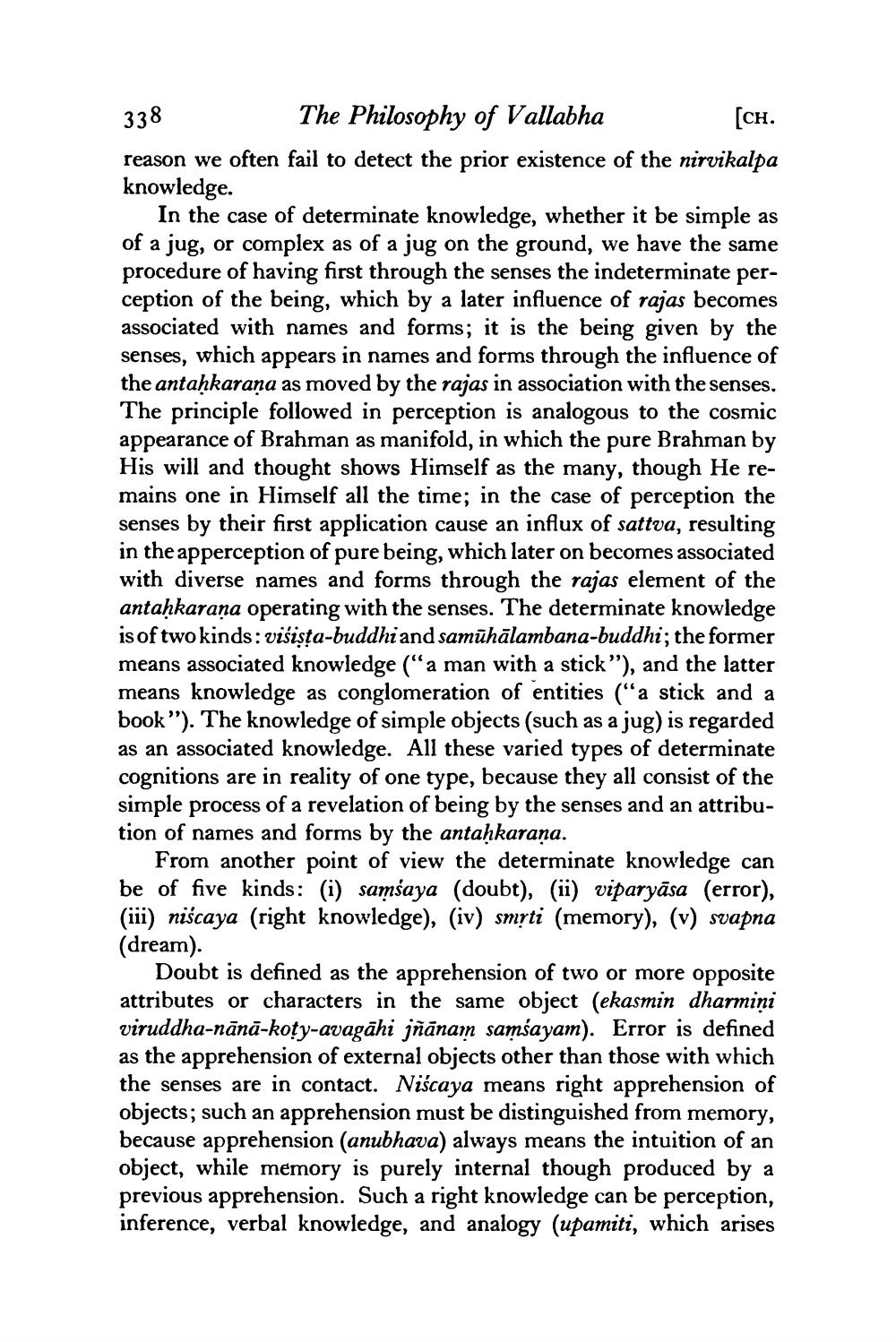________________
338
The Philosophy of Vallabha
[CH. reason we often fail to detect the prior existence of the nirvikalpa knowledge.
In the case of determinate knowledge, whether it be simple as of a jug, or complex as of a jug on the ground, we have the same procedure of having first through the senses the indeterminate perception of the being, which by a later influence of rajas becomes associated with names and forms; it is the being given by the senses, which appears in names and forms through the influence of the antaḥkarana as moved by the rajas in association with the senses. The principle followed in perception is analogous to the cosmic appearance of Brahman as manifold, in which the pure Brahman by His will and thought shows Himself as the many, though He remains one in Himself all the time; in the case of perception the senses by their first application cause an influx of sattva, resulting in the apperception of pure being, which later on becomes associated with diverse names and forms through the rajas element of the antaḥkarana operating with the senses. The determinate knowledge is of two kinds: višista-buddhi and samūhālambana-buddhi; the former means associated knowledge ("a man with a stick”), and the latter means knowledge as conglomeration of entities ("a stick and a book"). The knowledge of simple objects (such as a jug) is regarded as an associated knowledge. All these varied types of determinate cognitions are in reality of one type, because they all consist of the simple process of a revelation of being by the senses and an attribution of names and forms by the antaḥkarana.
From another point of view the determinate knowledge can be of five kinds: (i) samsaya (doubt), (ii) viparyāsa (error), (iii) niscaya (right knowledge), (iv) smrti (memory), (v) svapna (dream).
Doubt is defined as the apprehension of two or more opposite attributes or characters in the same object (ekasmin dharmiņi viruddha-nānā-koty-avagāhi jñānam samśayam). Error is defined as the apprehension of external objects other than those with which the senses are in contact. Niscaya means right apprehension of objects; such an apprehension must be distinguished from memory, because apprehension (anubhava) always means the intuition of an object, while memory is purely internal though produced by a previous apprehension. Such a right knowledge can be perception, inference, verbal knowledge, and analogy (upamiti, which arises




